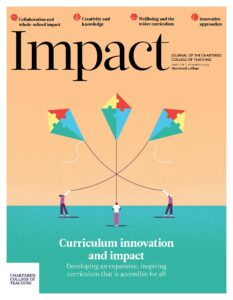Oracy skills development for collaborative learning
Written by: Hayley Murphy

- Curriculum |
- History |
- Oracy
6 min read
HAYLEY MURPHY, DIRECTOR OF TEACHING AND LEARNING AND YEAR 2 TEACHER, EVERSFIELD PREPARATORY SCHOOL, UK
When using collaborative learning (CL) in Year 2 lessons, I became conscious that the focus was on task outcome and that the students’ collaborative skills were not as effective as they could be. During my Year 2 CL lesson in history, I critically observed and reflected that my students lacked oracy skills to support them to deal with issues such as conflict management, negotiating, depth of answers and free-riding. Le et al. (2018) linked teachers’ failure to explicitly share collaborative oracy skills with students’ failure to identify with CL and with them only aiming for task completion. Therefore, this was an area of pedagogical practice that I set out to develop.
As identified in the Oracy Skills Framework (OSF) and Glossary (Oracy Cambridge, 2019), there are four oracy areas that students need to develop:
social and emotional
physical
cognitive
linguisti
Join us or sign in now to view the rest of this page
You're viewing this site as a guest, which only allows you to view a limited amount of content.
To view this page and get access to all our resources, join the Chartered College of Teaching (it's free for trainee teachers and half price for NQTs) or log in if you're already a member.
- Education Endowment Foundation (EEF) (2021) Collaborative learning approaches. Available at: https://educationendowmentfoundation.org.uk/education-evidence/teaching-learning-toolkit/collaborative-learning-approaches (accessed 6 November 2022).
- Le H, Janssen J and Wubbels T (2018) Collaborative learning practices: Teacher and student perceived obstacles to effective student collaboration. Cambridge Journal of Education 48(1): 103–122.
- Oracy Cambridge (2019) The oracy skills framework and glossary. Available at: https://oracycambridge.org/wp-content/uploads/2020/06/The-Oracy-Skills-Framework-and-Glossary.pdf (accessed 6 November 2022).
- Wiliam D (2016) Collaborative learning. Education Scotland. Available at: www.youtube.com/watch?v=TqBNWEQmBRM (accessed 6 November 2022).











An extremely well conducted piece of action research (AR) that has shown significantly positive results in practice. This is exactly why teachers should engage in AR and share their findings as a matter of every day professional development…and why headteachers should encourage it.